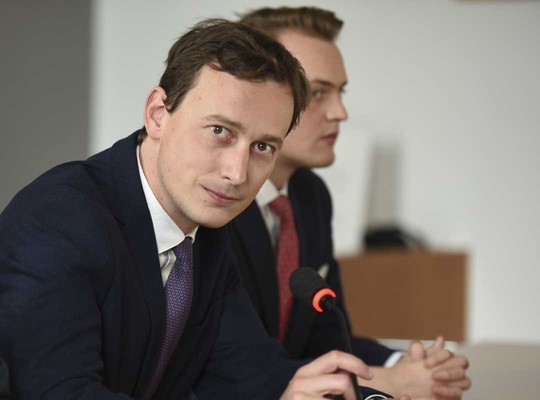You are here
The N-VA wants strict rules for local Brussels politicians’ fringe benefits

A PS party alderman in Sint-Joost-ten-Node was recently found to have used her fixed allowance of approximately EUR 1,800 to purchase cigarettes, fast food meals, lingerie and four iPhones (!), among other things. In the strictest sense, this wasn’t even illegal. “The legal framework is inadequate. Therefore, the Region must urgently determine limits for granting fringe benefits to municipal employees and local representatives. It is unacceptable for taxpayers’ money to be abused for personal follies such as lingerie,” says Brussels MP Mathias Vanden Borre.
The Brussels-Capital Region has no legal framework for fringe benefits. There is only a non-binding circular letter from 1994. Each of the 19 municipalities thus has the autonomy to decide which fringe benefits it wants to grant to municipal employees and local representatives. “There is only a transparency obligation that requires the 19 municipalities to publish an annual report, but this is being blatantly disregarded. Today, only nine of the 19 municipalities have published such a report for 2022, and the deadline has long passed. That leads to abuses,” Mathias Vanden Borre says.
Clear ground rules
Mathias: “Considering the extremely precarious financial situation of most Brussels municipalities and the large differences in fringe benefits between the various municipalities, we need clear ground rules in Brussels for the granting of fringe benefits. The reimbursement of expenses must only be possible if the costs are related to the execution of the mandate and the costs are necessary and substantiated. In principle, therefore, there must be no non-binding fixed allowances. That is how hard-earned taxpayers’ money can be prevented from being abused for purely personal purposes.”
Annual audit by the Court of Audit
“To promote transparency, the Region itself must therefore publish an annual report including the benefits granted on a regional government website. Finally, we request that the Court of Audit carry out an annual audit of the fringe benefits granted by the municipalities – and in particular, whether they remain within the limits of the regulations,” Mathias concludes.

